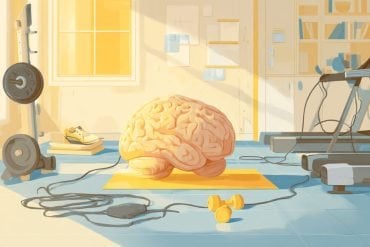Summary: Researchers conducted a study involving over 20,000 women to understand how age affects preferences for a romantic partner. They found that while most preferences, such as kindness and supportiveness, remain constant regardless of age, older women tend to prefer more confident, assertive partners and are more open to a wider age range, including younger partners.
Interestingly, the importance of a partner’s parenting intentions peaks around age 28 and decreases thereafter. This study offers new insights into how women’s partner preferences evolve with age, challenging traditional views on the matter.
Key Facts:
- The study included a large, international sample of single women aged 18 to 67, including heterosexual, bisexual, and lesbian women.
- Women’s preferences for partner attributes like confidence and assertiveness, as well as openness to age range, change with age.
- The significance of a partner’s parenting intentions declines after the age of 28, earlier than expected based on evolutionary theories.
Source: University of Gottingen
How do women picture the partner of their dreams? And how does this vary between women based on their age?
A team of researchers led by the University of Göttingen investigated the complex relationships between age and preferences for a partner in a large, international sample of single women.
The study found that most preferences for a partner showed no variation between women of different ages. However, higher age was linked to a preference for confident and assertive partners, as well as acceptance of a larger age range, in particular a higher acceptance of a partner being younger than oneself.
Age was also linked to the parenting intentions of the ideal partner: consistently high in importance until approximately age 28 and then decreasing thereafter.
The results were published in the Journal Human Nature.
To answer the question whether love knows no age, researchers from the University of Göttingen, Indiana University, and Queen’s University Belfast, collaborated with the female health app CLUE to reach over 20,000 single women aged 18 to 67 years from nearly 150 countries via an online questionnaire. In addition to heterosexual women, this study also included two groups often neglected in psychological research: bisexual and lesbian women.
Respondents were asked to rate how important attributes such as attractiveness, kindness and supportiveness, financial security and successfulness, as well as education and intelligence were to them in their partner. They were also asked to specify the youngest and oldest ages they would be happy to accept in a romantic partner.
Using rigorous methods, the role of age in partner preferences was thoroughly investigated in these three groups.
Most partner preferences – including the preference for a kind and supportive partner – were consistently important, regardless of age. The study, however, revealed links between age and some specific preferences.
“What was particularly interesting for us is that for heterosexual women up to the age of 28, the importance of the ideal partner wanting to be or become a father remained equally high, but decreased thereafter,” explains Laura Botzet from Göttingen University’s Department of Biological Personality Psychology.

Both evolutionary theories and psychological research on the “biological clock” would have suggested a later decline, namely between the ages of 40 and 50, when women approach the end of their reproductive phase.
This unexpected earlier decrease could be linked to changing life plans, with younger women re-evaluating family goals, whilst older women, who already have children, prioritize different aspects of their relationship. The pattern varied by sexual orientation, potentially indicating different attitudes towards own children among the groups.
Botzet concludes: “Love, it turns out, is not entirely ageless; it’s nuanced. A woman’s age is related to certain aspects of her desired partner, such as the preference for partners with stronger parenting intentions or the ideal age of a partner. These insights are exciting because they challenge conventional notions of how age is linked to the way women picture the partner of their dreams.”
About this aging, psychology, and relationships research news
Author: Melissa Sollich
Source: University of Gottingen
Contact: Melissa Sollich – University of Gottingen
Image: The image is credited to Neuroscience News
Original Research: Open access.
“The Link Between Age and Partner Preferences in a Large, International Sample of Single Women” by Laura Botzet et al. Human Nature
Abstract
The Link Between Age and Partner Preferences in a Large, International Sample of Single Women
Women’s capacity to reproduce varies over the life span, and developmental goals such as family formation are age-graded and shaped by social norms about the appropriate age for completing specific developmental tasks. Thus, a woman’s age may be linked to her ideas about what an ideal partner should be like.
With the goals of replicating and extending prior research, in this study we examined the role of age in women’s partner preferences across the globe.
We investigated associations of age with ideal long-term partner preferences in a cross-cultural sample of 17,254 single (i.e., unpartnered) heterosexual women, ages 18 to 67, from 147 countries. Data were collected via an online questionnaire, the Ideal Partner Survey. Confirming our preregistered hypotheses, we found no or only negligible age effects on preferences for kindness-supportiveness, attractiveness, financial security-successfulness, or education-intelligence.
Age was, however, positively associated with preferences for confidence-assertiveness. Consistent with family formation goals, age was associated with an ideal partner’s parenting intentions (high until approximately age 30, then decreasing afterward).
Age range deemed acceptable (and in particular, the discrepancy between one’s own age and the minimum ideal age of a partner) increased with age. This latter pattern also replicated in exploratory analyses based on subsamples of lesbian and bisexual women. In summary, age has a limited impact on partner preferences.
Of the attributes investigated, only preference for confidence-assertiveness was linked with age.
However, age range deemed acceptable and an ideal partner’s parenting intention, a dimension mostly neglected in earlier research, substantially vary with age.







